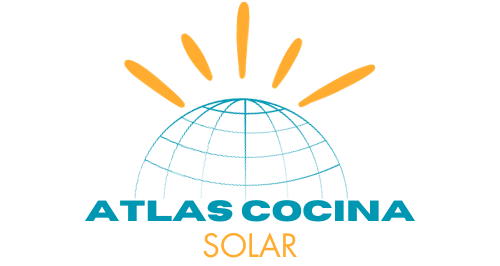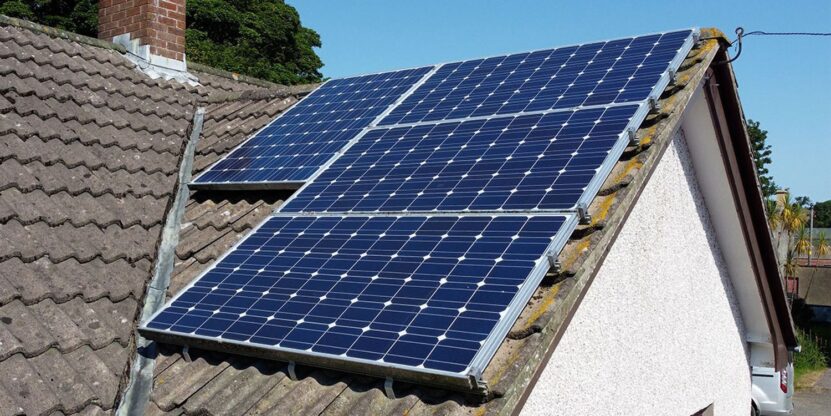Solar energy offers numerous benefits, including reduced energy bills, decreased carbon footprint, and increased property value.
However, there are common misconceptions, especially about “free solar panels from the government.”
It’s crucial to understand the myths and facts about these offers to make informed decisions.
Genuine Government Programs for Low-Income Households
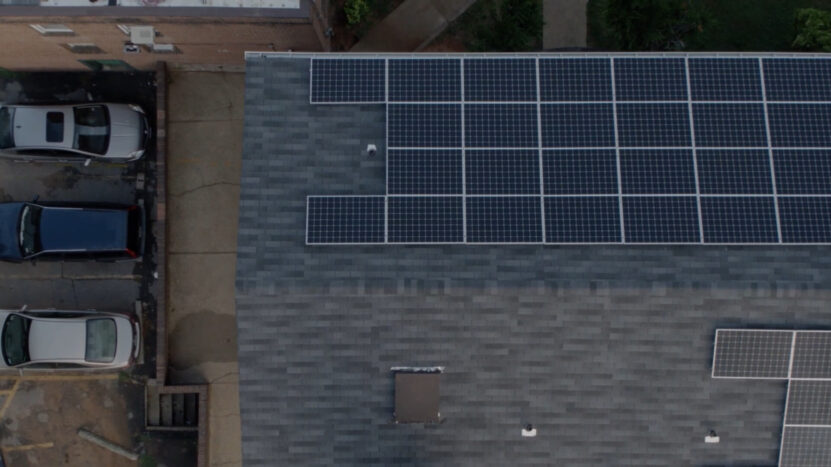
Several state-run programs provide solar panels at no cost to low-income households.
These initiatives aim to make solar energy accessible to everyone, regardless of their financial situation.
GRID Alternatives is a nonprofit organization that installs solar systems for low-income families, offering significant savings on energy bills.
They operate in several states and have a strong track record of community engagement and successful installations.
- California’s Low Income Weatherization Program (LIWP) provides solar installations as part of a broader effort to improve energy efficiency in low-income households.
- California’s Disadvantaged Communities – Single-family Solar Homes (DAC-SASH) program specifically targets disadvantaged communities, offering fully subsidized solar installations.
- Colorado’s Weatherization Assistance Program (WAP) includes solar panel installations as part of its energy efficiency upgrades for low-income households.
- Washington DC’s Solar for All program aims to provide solar energy to 100,000 low-income households by 2032.
Illinois’ Solar For All program focuses on increasing access to solar energy for low-income and environmental justice communities.
It offers various incentives to make solar installations affordable and beneficial for residents.
Federal and State Incentives
The Federal Solar Investment Tax Credit (ITC) is a major incentive that offers a 30% tax credit for solar installations.
Solar Renewable Energy Credits (SRECs) and performance-based incentives are additional ways to save.
SRECs allow homeowners to earn credits for the electricity their solar panels produce, which can then be sold to utilities.
Performance-based incentives provide payments based on the amount of energy generated by the solar system.
State and local incentive programs further reduce the cost of solar installations.
Many states offer net metering, allowing homeowners to sell excess energy back to the grid, reducing their electricity bills.
Direct rebates and grants are also available in some areas, providing immediate financial relief for solar installations.
Alternative Financing Options
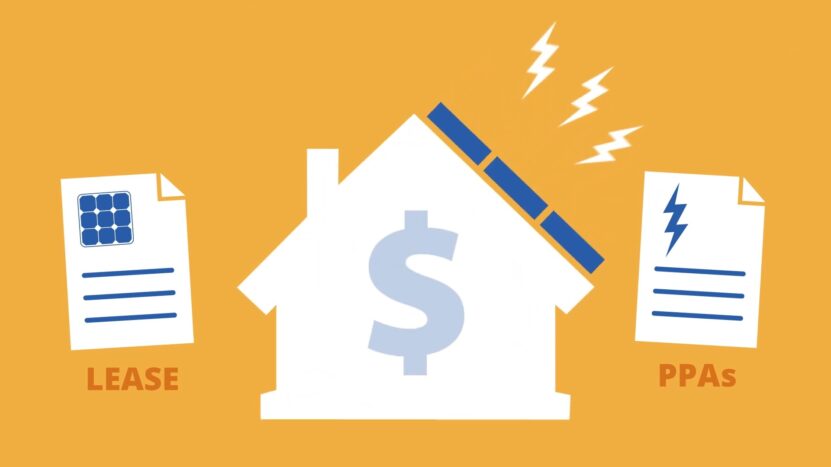
Solar leases and Power Purchase Agreements (PPAs) are popular financing options that require no upfront costs.
Under a solar lease, the homeowner pays a fixed monthly fee to use the solar system.
With a PPA, the homeowner pays for the electricity generated by the system at a predetermined rate, usually lower than the utility’s rate.
Both options offer immediate savings but do not provide ownership of the solar system. Have in mind that the size of the system is another major factor to consider in this case.
Zero-down solar loans are another option, combining no upfront costs with the benefits of system ownership.
These loans allow homeowners to pay for the solar installation over time while still receiving the financial benefits of owning the system, such as tax credits and increased property value.
Community solar programs offer a way to benefit from solar energy without installing panels on one’s property.
Homeowners can subscribe to a community solar project and receive a portion of the energy generated, resulting in guaranteed savings on their electric bills.
Each financing option has its advantages and drawbacks, so it’s important for homeowners to carefully consider their financial situation and long-term goals when choosing the best option for their needs.
How to Avoid Scams
To avoid falling victim to fraudulent solar offers, homeowners should follow these tips.
Be Skeptical of Social Media Ads and Unsolicited Offers
To avoid falling victim to fraudulent solar offers, homeowners should first be skeptical of social media ads and unsolicited offers.
Scammers often use these channels to lure in unsuspecting victims with promises of free solar panels.
These ads might look professional and convincing, but they often lack the legitimacy and reliability of genuine offers.
Unsolicited emails, phone calls, or door-to-door sales pitches should also be treated with caution.
Verify Legitimacy Through Official.gov Websites
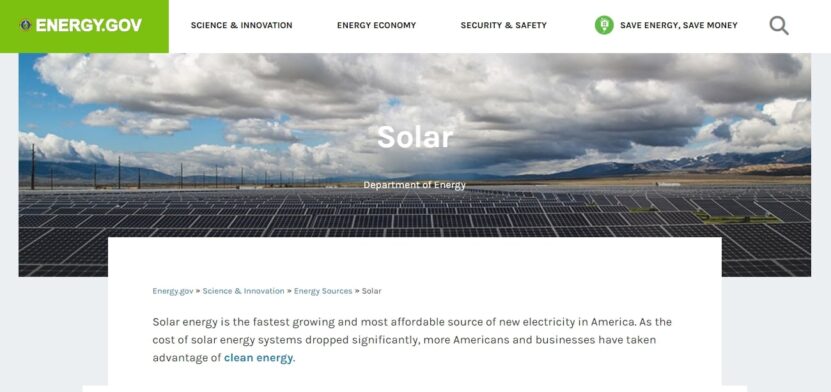
Always verify the legitimacy of programs through official .gov websites.
These sites provide accurate and up-to-date information on government incentives and programs, ensuring that you are getting the correct details about available solar benefits.
Scammers often mimic legitimate programs to deceive consumers, so it’s important to cross-check any offer you receive with information available on government websites.
Check Contact Information for Authenticity
Checking addresses, phone numbers, and emails for authenticity can also help identify fraudulent schemes.
Genuine solar companies will have professional contact information and a verified online presence.
Look for business addresses that are traceable and phone numbers that are listed on the company’s official website.
Email addresses should be from the company’s domain rather than generic email services.
Consult State or Local Solar Industry Groups
Consulting state or local solar industry groups is another way to ensure the legitimacy of a solar offer.
These organizations can provide recommendations for reputable solar installers and offer guidance on available incentives and financing options.
Industry groups often have directories of certified and trusted professionals, which can help you find reliable companies.
They can also alert you to common scams and provide tips on what to look out for when considering solar offers.
